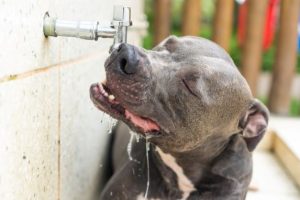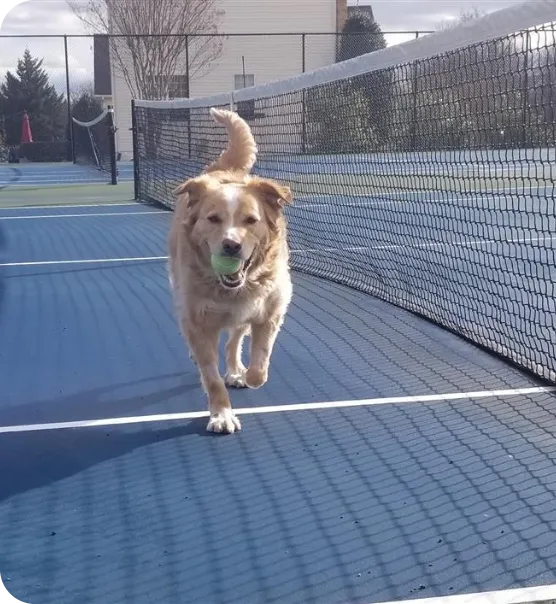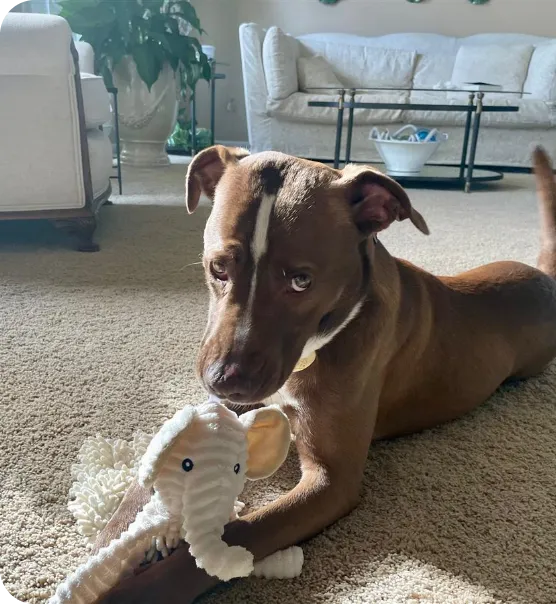Ways to Keep Your Pet Hydrated During the Dog Days of Summer
Finally, summer is here, and with it comes more of the great outdoors and a break from routine.
As the mercury rises, it’s important to keep in mind that water is an essential nutrient for pets, as it is for all mammals. Water supports many physiological functions, regulates body temperature, helps to remove metabolic waste, and establishes a complex body-fluid matrix that controls all metabolic processes. That’s how important it is to your dog’s health (and yours, too.)
Excessive panting, lethargy, loss of appetite, and diarrhea can show that your pet is dehydrated. A simple way to check for yourself is the skin elasticity test. Just pinch the skin between your pup’s shoulders. Your pup is probably dehydrated if it doesn’t pop back into place. If your dog appears to be in shock or suffering from heatstroke, skip this test, give your pet a small amount of water and call your vet immediately.

Of course, the best course of action is to make sure your dog doesn’t become dehydrated, to begin with. A simple step, such as making fresh, cool water continually available in several places of their environment, ishighly effective. Weighted water bowls help tremendously with accidental tip-overs. Another handy gadget is a doggy drinking fountain that keeps the water cleaner and in constant motion. It’s thought that dogs will drink more and drink more often from one of these relatively inexpensive systems.
These are just two ways to keep your pup hydrated and healthy. Simple things like adding water to your dog’s food, making ice pops, offering water from your hands, and making a doggie smoothie all count.
Limiting exercise on hot days and keeping them out of the sun for anything other than short lengths of time also work to keep your dog safer.
It doesn’t really matter how you’re keeping your dog hydrated; just make sure they drink enough water throughout the day, even if it means more trips outside to relieve themselves. Our responsibility as their trusted ‘person’ is to ensure they have access to it.






